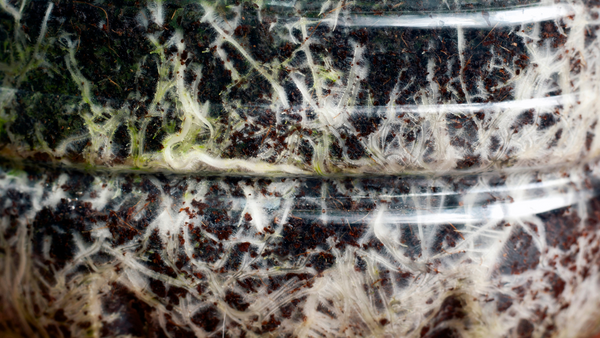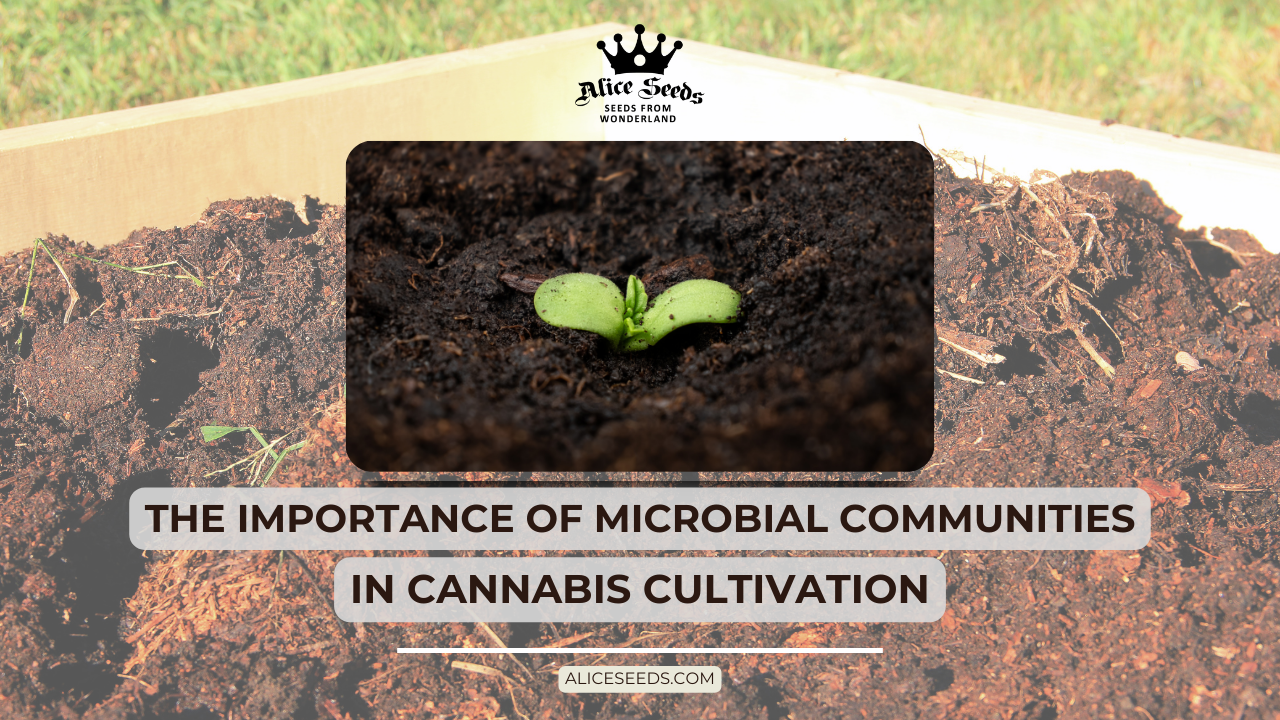When it comes to cannabis cultivation, most people tend to focus on factors like nutrient content in fertilizers, light intensity, and environmental temperature. However, there is another crucial factor that is often overlooked: the microbial communities in the soil.
Microbial communities play a vital role in the health and growth of cannabis plants. These communities consist of various microorganisms such as bacteria, fungi, and archaea, which interact with the plant's root system in symbiotic relationships.

Did you know that every gram of soil can contain up to several billion living microorganisms? These microorganisms come from a wide range of species and play various roles. They coexist, preserve, and balance each other, creating a stable ecosystem in the soil. Over hundreds of millions of years of evolution, plants have learned to coexist with soil microorganisms and harness their abilities. It can be said that without these microorganisms, plants could not survive on Earth. Modern farming methods using inorganic fertilizers have disrupted the soil microbial community. However, with the rise of organic farming practices, soil microorganisms are making a comeback to support and protect crops.
Crucial roles of microbial communities
1. Nutrient Cycling:
Microbes help break down organic matter in the soil, including fallen leaves and plant debris, releasing essential nutrients in forms that are readily available for plant uptake. They contribute to nutrient cycling processes, ensuring that plants have access to the nutrients they need for healthy growth. This process is crucial for maintaining a nutrient-rich environment that promotes plant health and vitality.
Moreover, plants can influence different microbial communities at various stages to ensure the adequate breakdown of nutrients required for their growth. This is why plants grown using organic methods or those growing naturally in the wild often do not require precise fertilization at each stage of their lifecycle. They self-select their food, create their nourishment, and consume it, needing only regular watering or rainfall to thrive.
2. Disease Suppression:
Certain beneficial microbes in the soil can suppress the growth of pathogenic organisms that cause diseases in cannabis plants. This natural disease suppression can help reduce the need for chemical pesticides and fungicides. This can lead to a healthier and more sustainable approach to cannabis cultivation.
Many professional growers believe that cannabis plants exposed to soil rich in microorganisms from germination have better resilience due to improved immunity throughout their lifecycle. Whether this belief is true or not, it's undeniable that cannabis plants cultivated using organic methods are generally less susceptible to diseases compared to those grown using conventional methods.
This phenomenon can also be explained by the soil microbial community. Once the soil microbiota has reached a balanced and stable state, external microorganisms find it challenging to integrate into the food chain. In other words, it's difficult for them to invade the soil and harm the plants. They will either be eliminated by the existing soil microorganisms or face competition for food, ultimately leading to extinction.
3. Enhanced Root Development:
Mycorrhizal fungi form symbiotic relationships with plant roots, extending the root system and improving nutrient and water uptake. This leads to enhanced root development and overall plant health. This natural process is crucial for promoting plant growth and vitality in a sustainable manner.
4. Plant Resilience:
A diverse and balanced microbial community in the soil can enhance the plant's resilience to environmental stressors such as drought, heat, and disease. This resilience can result in higher yields and better quality cannabis crops.
5. Ensuring Optimal pH Levels:
As mentioned earlier, soil microorganisms coexist and maintain balance within the soil ecosystem. Soil pH plays a crucial role in cannabis cultivation, as it affects nutrient availability and microbial activity. Many beneficial soil microorganisms thrive within a specific pH range suitable for cannabis growth.
When the pH of the soil fluctuates, the microbial community also changes, with some species disappearing and others becoming dominant. To maintain a stable ecosystem, certain microorganisms have the ability to raise or lower the soil pH in response to environmental changes. Cannabis plants may also play a significant role in stimulating or inhibiting these microbial species. Therefore, when using organic soil mixes with a well-developed microbial community, growers may not need to worry too much about the pH of their irrigation water. Neutral water, neither too alkaline nor too acidic, suffices, as soil microorganisms will help balance the pH according to the needs of the plants.

Conclusion
With the functions described above, it's evident that the soil microbial communities are one of the most crucial factors in the cannabis cultivation process. The perspective of professional organic cannabis growers is that protecting the soil microbial communities is paramount, as they are the ones that directly nourish the plants, not us. Therefore, it's essential to protect the soil microbial communities by regularly supplementing organic matter (food for the microbes) into the soil, watering consistently to maintain moisture, and saying NO to inorganic fertilizers. By doing these three things well, the soil microbial communities will take care of the rest for you.

